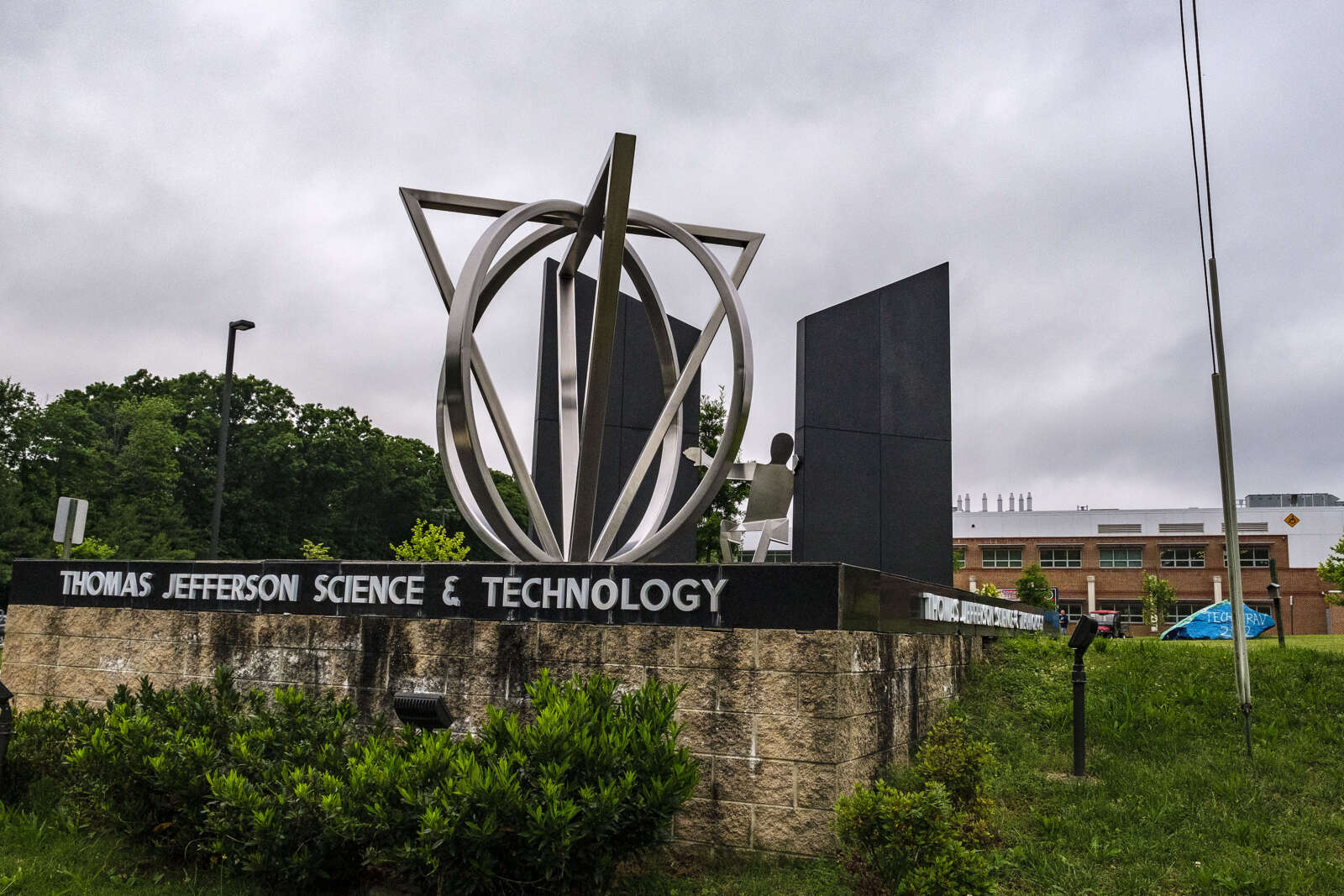
The Coalition for TJ is petitioning the U.S. Supreme Court to consider its lawsuit challenging the constitutionality of Thomas Jefferson High School for Science and Technology’s admissions policy, which was revised in 2020 with the goal of diversifying the student body.
In the petition filed Monday (Aug. 21), the advocacy group argues that the changes approved by the Fairfax County School Board discriminate against Asian students, who saw their share of the magnet school’s incoming classes drop from more than 70% to closer to 60% in the past few years.
The coalition indicated it would take the case to the country’s highest federal court after a Fourth Circuit Court of Appeals panel ruled 2-1 in the school board’s favor on May 23.
But the fight over TJ’s admissions has grown in significance following the Supreme Court’s June 29 decision to prohibit colleges from considering race in admissions decisions. Where that case tackled policies that explicitly take race into account, the Coalition for TJ contends that race-neutral policies designed to boost underrepresented groups can still violate other students’ equal protection rights.
“The Fourth Circuit’s ruling merits this Court’s review because it presents a question of national importance that the Court has yet to answer directly,” Pacific Legal Foundation attorneys representing the coalition wrote in their petition. “Coming as it does on the heels of last Term’s decision curtailing racial discrimination in higher education admissions, this is one of several ongoing challenges to competitive K-12 admissions criteria that seek to accomplish a racial objective ‘indirectly’ because it ‘cannot be done directly.'”
Spurred by student and alumni activism, the school board overhauled the TJ admissions process after Fairfax County Public Schools reported that fewer than 10 Black students had been accepted in both 2019 and 2020.
In addition to eliminating an application fee and rigorous standardized test, the new policy bumped up the GPA requirement to 3.5, granted eligibility to the top 1.5% of eighth graders at each middle school, introduced a “portrait sheet” where students discuss their skills and write a problem-solving essay, and allows consideration of students’ economic status or involvement in English as a Second Language and special education programs.
The changes were the latest attempt to bring more Black, Hispanic and low-income students to TJ, which is often ranked among the top high schools in the U.S. but has long faced scrutiny for admissions practices that critics argued catered to families who could afford to live in certain neighborhoods and pay for private tutoring and test-preparation services.
Since the revised policy took effect in 2021, FCPS has touted increased racial, geographic and economic diversity in each of the three admitted classes, which have all included students from every Fairfax County middle school — something that hadn’t happened in the prior decade.
FCPS has argued that the changes were race-blind and benefitted all groups, including lower-income Asian students. The appeals court judges who sided with the school board said the Coalition for TJ failed to prove that Asian students were “disparately” affected and “that the Board adopted its race-neutral policy with any discriminatory intent.”
FCPS didn’t return a request for comment by press time.
In a joint statement, a collection of civil rights and community advocacy groups — including the Virginia NAACP, TJ Alumni for Racial Justice, CASA Virginia, Hispanic Federation, Hamkae Center and Asian American Youth Leadership Empowerment and Development (AALEAD) — argued that the Coalition for TJ’s lawsuit would limit, rather than expand, equal access to education.
“In essence, the plaintiff seeks to cement pre-existing inequalities by prohibiting school districts from trying to remedy any unfairness in the admissions process that may change the racial makeup of accepted students,” the groups said.
“Every parent wants to know their child will not be disadvantaged in our public education system no matter their personal wealth or language abilities,” Hamkae Center Director Sookyung Oh said. “It is imperative that students from communities of color, including Asian Americans, will not be disadvantaged by an unfair admissions process and will have the same access…only previously afforded to those with the wealth and privilege to get their children into schools like TJ.”
Fairfax County Public Schools has officially announced that it will not implement the Virginia Department of Education’s recently finalized model policies regarding transgender and nonbinary students.
Yesterday (Tuesday), FCPS Superintendent Michelle Reid released a statement confirming that FCPS won’t adopt the new guidelines after a “detailed legal review” found that its current policies are “consistent” with state and federal law.
The statement notes that gender-expansive and transgender students will continue to be referred to by their chosen names and pronouns, given access to school programming and facilities based on their gender identity, and “have their privacy respected,” regardless of their gender identity or legal sex.
“Let me be clear that FCPS remains committed to fostering a safe, supportive, welcoming, and inclusive school environment for all students and staff, including our transgender and gender expansive students and staff,” Reid wrote. “We believe that supporting our students and working with parents and caregivers are not mutually exclusive; we already do both and will continue to do so. We know that students can only learn effectively when they feel safe and supported.”
The policies that FCPS plans to keep in place directly oppose Gov. Glenn Youngkin’s guidance, which has two main requirements:
- Students must participate in school activities and use school facilities according to their sex legally assigned at birth rather than gender identity
- Parents must provide written consent if a student wants to go by a name and/or pronouns that differ from what appears on the student’s official records
Youngkin has characterized the policies as keeping parents involved “in conversations about their child’s education, upbringing, and care.”
Waves of backlash from LGBTQIA+ advocates have rippled across the state since late 2022, when Youngkin first announced his proposed changes to former governor Ralph Northam’s previous policies.
FCPS Pride, an LGBTQIA+ advocacy organization for employees and other adults affiliated with FCPS, played a leading role in advocating for FCPS to take a firm stance against Youngkin’s policies and in favor of transgender and gender-expansive student rights.
FCPS Pride co-chair Robert Rigley Jr. says the state guidelines — which he nicknames the “Don’t Be Trans” policy — make transgender and non-binary students feel unwelcome in Virginia schools and “remove civil and human rights.”
“[The policy] makes it so that some adults have veto power over someone’s gender identity, which from a queer person’s point of view is absurd,” Rigley Jr. said. “…It steals agency in particular from transgender children. It says that you are not in control of your identity at a very basic level, and it turns families and schools against one another, battling over children who are among the most vulnerable children in this state.”
“It traumatizes a whole generation of queer kids in Virginia,” he continued.
FCPS Pride and nine other community organizations held a rally at Luther Jackson Middle School (3020 Gallows Road) in Merrifield. Originally intended as a protest for FCPS to take a clear stance against Youngkin’s policies, the rally transformed into a celebration after the release of Reid’s statement. Read More
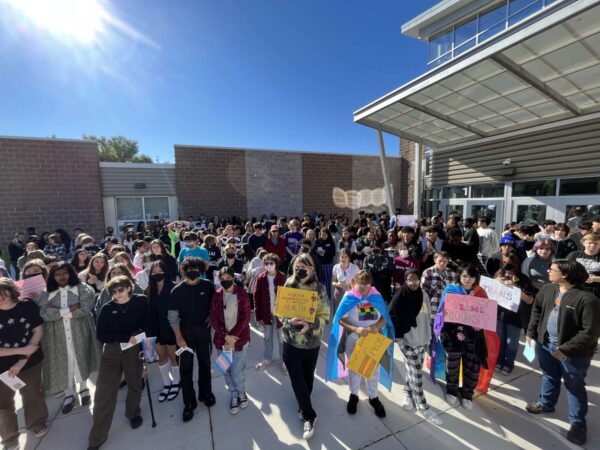
After months of review, the Virginia Department of Education has released a final set of policies guiding public schools on how to treat transgender students — including many that contradict the policies currently used by Fairfax County Public Schools.
Released Tuesday (July 18), the “model policies” generally direct schools to require that students use names, pronouns and facilities, such as bathrooms, based on their legal sex as designated in their official school records. All local public school systems are obligated by state law to adopt a version of the policies.
FCPS, which has provided protections for students based on their gender identity since 2020, says it’s now “reviewing” the new policies from the state.
“FCPS remains committed to an inclusive learning environment for each and every student and staff member including those who are transgender or gender expansive,” FCPS Superintendent Michelle Reid said in a statement. “Our schools will continue to be safe and respectful learning spaces.”
Rolling back rules issued by the state in 2021 that let students use names, pronouns and facilities matching their gender identity, the new policies require school employees to refer to students by the name and pronouns corresponding to the sex displayed on their official school records.
Employees can use a different name or pronoun if a parent provides written permission, but even with a parent’s consent, the name and sex in school records can only be changed if a legal document, such as a birth certificate, passport or driver’s license, is provided.
The document says the use of bathrooms and other facilities must also be based on sex, even as it acknowledges that an appeals court found denying students access to bathrooms that correspond with their gender identity to be discriminatory.
Participation in school activities, including athletics, will also be determined by sex, though the state law requiring the VDOE to develop the model policies on transgender students explicitly excluded athletics from consideration.
Gov. Glenn Youngkin lauded the policies as affirming the importance of parents being engaged in their children’s lives.
“The VDOE updated model policies reaffirm my administration’s continued commitment to ensure that every parent is involved in conversations regarding their child’s education, upbringing, and care,” he said in a statement. “Public comment, input, and concerns were carefully evaluated and assessed to formulate the updated model policies.”
All children in Virginia deserve to have a parent engaged in their life and to be treated with dignity and respect.
I am committed to ensuring that every parent is involved in conversations regarding their child’s education, upbringing and care.https://t.co/eywLB6h15n
— Governor Glenn Youngkin (@GovernorVA) July 18, 2023
The policies are largely the same as an earlier draft released last fall that spurred student protests across the state in support of transgender rights and drew over 70,000 public comments.
The Pride Liberation Project, a student-led LGBTQ advocacy group that organized the protests, blasted the final document as “Don’t Be Trans” policies — echoing the “Don’t Say Gay” moniker used by critics for a Florida law that banned discussions of gender identity and sexual orientation in schools.
The VDOE policies represent “an attempt to force LGBTQIA+ students back into the closet,” the PLP said, urging school districts to reject them. Read More
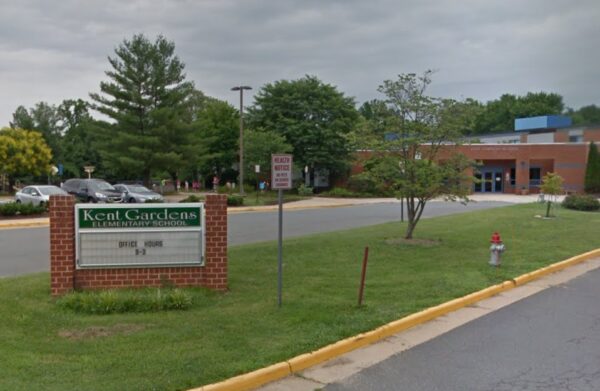
Another boundary adjustment is in the works for schools in McLean.
Just two years after tweaking the McLean High School boundaries, Fairfax County Public Schools has proposed a study aimed at relieving crowding at Kent Gardens Elementary School (1717 Melbourne Drive), which is currently at 121% capacity — one of the highest rates in the system.
FCPS staff recommend that the study include the boundaries for Chesterbrook, Churchill Road, Franklin Sherman and Spring Hill elementary schools, as well as Kent Gardens, according to a presentation to the Fairfax County School Board last night (Monday).
It could also examine the boundaries for the Advanced Academic Programs at Haycock and Churchill Road, along with the potential need for a “split feeder” for affected middle school and high schools.
“We have a beloved school that is overcrowded, and as a community, we’re going to have to make some tough decisions,” Dranesville District School Board Representative Elaine Tholen said, thanking the McLean community for its involvement. “People are coming to the table and giving us input on what makes sense.”
The recommendation was shaped by community feedback from a scoping meeting held on April 26 and a subsequent online survey. The meeting had about 75 attendees, and the survey drew 171 responses, according to FCPS.
More than 100 comments advocated for the inclusion of Chesterbrook and Franklin Sherman, though Haycock, Spring Hill, Lemon Road, Timber Lane and Westgate elementary schools all got mentions.
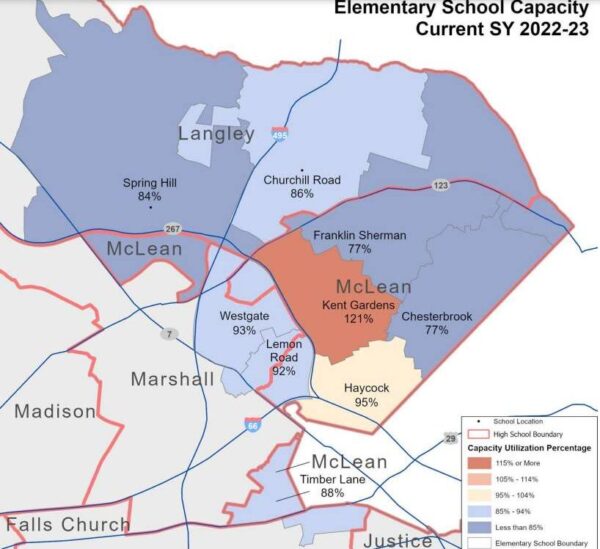
FCPS isn’t recommending Haycock, Lemon Road and Westgate for the study, said Charles Fanshaw, interim assistant superintendent for facilities and transportation services.
“Adding students may require capacity relief. Additionally, Haycock Elementary School is currently approaching a capacity deficit,” Fanshaw said. “If these three schools were to be added to the scope, schools adjacent to these school boundaries would need to be considered as well.”
Community members also suggested that any boundary changes should be phased in for current Kent Gardens students and urged FCPS staff to consider future population growth and the walking distance to different schools.
Some proposed adding a French immersion program at another school, since the program’s popularity at Kent Gardens has been cited as a factor in the overcrowding. FCPS says it would take at least three years of planning to establish a new program, according to a webpage for the capacity issues. Read More
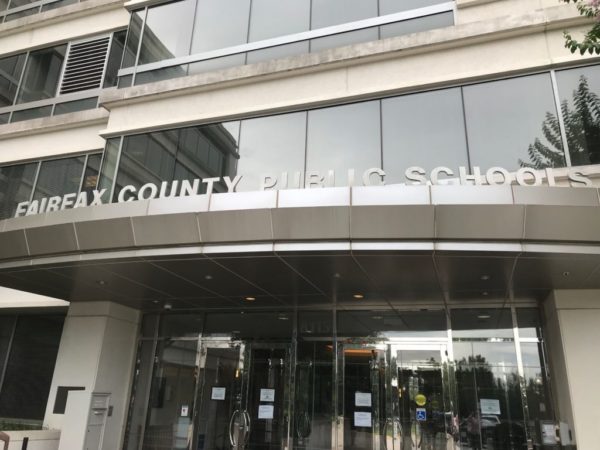
(Updated at 11 a.m. on 6/27/2023) The Fairfax County School Board voted 9-1 last night (Monday) to raise member salaries to $48,000 with an additional $2,000 for the board chair, starting Jan. 1, 2024.
Aiming lower than what staff proposed, the raises are comparable to compensation for other paid school boards governing large school systems elsewhere in the country and raises approved in previous years, Mount Vernon District School Board representative Karen Corbett-Sanders said.
At-large member Abrar Omeish opposed the motion, saying that she struggled to support it “from a moral perspective” when “education in general is hurting.” Hunter Mill District representative Melanie Meren and Sully District representative Stella Pekarsky abstained.
The raises will take effect on Jan. 1, 2024. All school board seats will be up for election on Nov. 7.
FCPS staff recommended raising the annual pay for each of the 12 elected school board members to $60,404. An additional $2,000 increase is proposed for the board chair, a position that changes each year.
Prior to the board meeting, School Board Chair Rachna Sizemore-Heizer told FFXnow that the staff proposal “would align future board members’ modest compensation with new starting teacher salaries,” noting that the board has raised its pay just three times in the past 35 years, most recently in 2015.
A new teacher with a bachelor’s degree and a 260-day contract will make $66,177 for fiscal year 2024, which starts July 1, according to FCPS’ salary scales.
“Increasing compensation for future school board members acknowledges the significant time commitment of the work in one of the nation’s largest and most complex school systems and opens the door to public service for Fairfax County residents with diverse backgrounds and experiences who may not be able to consider serving otherwise,” Sizemore-Heizer said.
Like the Fairfax County Board of Supervisors, the school board is required by state law to vote on any member pay raises, which can only be proposed before July 1 of the year of an election.
Fairfax County’s school board last approved raises by a 5-4 vote in April 2015, bumping the salary for each member up from $20,000 to the current $32,000 rate. Virginia lets school boards give their chair an additional increase of up to $2,000, so the chair receives $34,000 right now.
In a summary, FCPS staff highlighted the school board’s various duties as it oversees the largest public school district in Virginia:
School Board members are responsible for developing and setting school division policy, approving the annual budget, hiring the Superintendent, and adjudicating student disciplinary and school division employee appeals. They spend many hours preparing for and attending official meetings, work sessions, committee meetings, public hearings, and other functions – nearly 150 meetings in the 2022-23 school year alone. Additionally, Board members attend school, PTA, and community meetings and events, visit schools, attend required professional development programs, and communicate with students, parents, staff, stakeholders, and other constituents.
The Board of Supervisors approved salaries on March 21 of $123,283 for supervisors and $138,283 for the chairman — slightly lower rates than what county staff had initially proposed. It was the board’s first raise since 2015.
While that vote was preceded by a public hearing with sometimes emotional testimony by residents and county workers, the school board’s vote took place around 1 p.m. without public comment. The Code of Virginia doesn’t appear to require a hearing, only a vote by the school board.
Notably, only three school board members are seeking reelection this year: Karl Frisch (Providence District), Melanie Meren (Hunter Mill) and Mason District representative Ricardy Anderson (Mason).
Sizemore-Heizer, an at-large member, is campaigning for the Braddock District seat after Megan McLaughlin announced in February that she’ll retire when her third and final term ends on Dec. 31.
At-large member Abrar Omeish, Karen Corbett Sanders (Mount Vernon), Tamara Derenak Kaufax (Franconia) and Elaine Tholen (Dranesville) have also opted out of reelection bids.
The other members — Karen Keys-Gamarra (at-large), Laura Jane Cohen (Springfield) and Stella Pekarsky (Sully) — are running for General Assembly seats. All of them won the Democratic primary for their respective races last Tuesday (June 20).
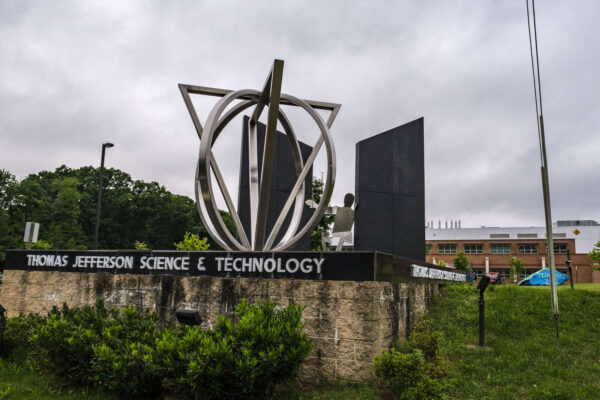
(Updated at 4:20 p.m.) The current admissions process for Thomas Jefferson High School for Science and Technology (TJ) does not discriminate against Asian American students, the U.S. Court of Appeals for the Fourth Circuit has ruled.
A majority of the three-judge panel backed the Fairfax County School Board’s argument in support of admissions policy changes intended to increase diversity at the prestigious magnet school, reversing a lower court’s ruling that sided with the Coalition for TJ.
The advocacy group filed a lawsuit against the school board in March 2021, arguing that the changes adopted in 2020 were intended to reduce the number of Asian students at TJ in violation of the Constitution.
In an opinion published today (Tuesday), Circuit Judge Robert King says the Coalition failed to prove that the school board intended to discriminate against Asian students, who have, in fact, seen “greater success in securing admission to TJ under the policy than students from any other racial or ethnic group.”
“After thorough consideration of the record and the appellate contentions, we are satisfied that the challenged admissions policy does not disparately impact Asian American students and that the Coalition cannot establish that the Board adopted its race-neutral policy with any discriminatory intent,” King wrote.
Since taking effect with the Class of 2025, the admissions changes — which included dropping a required test and application fee and taking into account a student’s economic, special education or English-learner status — have resulted in offers going to a broader range of students in terms of race, geography and income.
The Class of 2025 was the first in a decade to accept students from all middle schools. It also saw an uptick in Black, Hispanic and economically disadvantaged students, Fairfax County Public Schools reported. Both that year and last year, Asian students still received a majority of offers.
“The court reached the correct decision, and we firmly believe this admission plan is fair and gives qualified applicants at every middle school a fair chance of a seat at TJ,” John Foster, the school board’s division counsel, said in a statement. “We look forward to offering seats to a new group of remarkable and incredibly well-qualified young scholars in the years to come.”
U.S. District Judge Claude Hilton had ruled in February 2022 that Asian students were “disproportionately harmed” by the admissions changes, which he said were implemented in a “remarkably rushed and shoddy” process.
Hilton ordered that FCPS stop using the new policy, but the appeals court agreed to let it stay in place while the lawsuit continued.
While King said that Hilton’s judgment “went fatally awry” in not addressing how racial and ethnic groups other than Asians fared under the new policy, Circuit Judge Allison Rushing argued a dissenting opinion that the changes were “passed with discriminatory intent and disproportionately impact a particular racial group,” even if they appear race-neutral on paper.
“The twelve-member Board plainly stated its intention to craft an admissions policy for TJ that would reform the racial composition of the student body to reflect the racial demographics of the district,” she wrote.
The Coalition for TJ says it wasn’t surprised by the ruling and intends to take the case to the U.S. Supreme Court.
“We are disappointed by today’s ruling, but we are not discouraged,” Pacific Legal Foundation attorney Erin Wilcox, who has been representing the coalition, siad. “Discrimination against students based on their race is wrong and violates the Constitution’s guarantee of equal protection. We look forward to asking the Supreme Court to end this illegal practice once and for all.”
The Supreme Court is already considering a case on affirmative action in college admissions. Some universities have started to review their practices, with the mostly conservative justices expected to defy precedent by declaring race-conscious admissions unlawful.
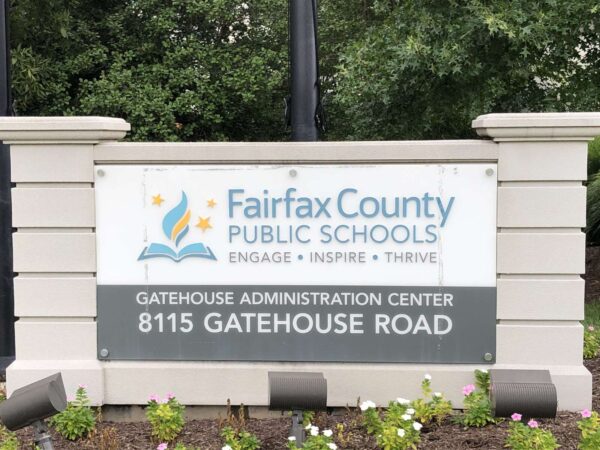
Fairfax County Public Schools is proposing some notable updates to its student policies.
At last week’s school board meeting, school officials laid out a number of proposed revisions to its Student Rights and Responsibilities handbook, including how cases of bullying are handled, what’s interpreted as appropriate clothing, and the potential for increased punishment for substance misuse.
The presentation from FCPS Assistant Auperintendent Michelle Boyd was relatively brief due a planned school board work session next week (May 23), which will likely be spent discussing the proposed dress codes updates, Providence District School Board Representative Karl Frisch noted.
Essentially, FCPS is looking to update verbiage around the dress code, which was last reviewed in 2016. The update will not include a ban on pajamas that was initially proposed earlier this year but has since been reconsidered.
Proposed language includes the dress code supporting “equitable educational access” while not reinforcing stereotypes or increasing marginalization:
FCPS’ student dress code supports equitable educational access and is written in a manner that does not reinforce stereotypes or increase marginalization or oppression of any group based on race, color, national origin, caste, religion, sex, pregnancy, childbirth, medical condition, household income, sexual orientation, gender identity, gender expression, marital status, disability, age, or genetic information.
It also clarifies that the same rules apply “regardless of the student’s age or gender” while providing examples of what isn’t allowed, including clothing that depicts or promotes use of weapons, alcohol, tobacco, or drugs.
Any violation and enforcement of the dress code will continue to be addressed in a “discreet” manner, showing respect to the student, and “minimizes loss of instructional time.”
“Violations of the dress code should generally be treated as minor infractions unless they are repeated or egregious in nature (e.g., streaking, hate speech),” the current code says.
However, this can leave much open to interpretation for school staff and administration. Several school board members noted that some language could be included to ensure a more standardized interpertation across the school system.
“I know we are trying to thread a needle here between what kids recognize as appropriate dress and not,” Springfield District School Board member Laura Jane Cohen said.
Also being proposed is a shift in what happens when there are alleged acts of bullying. The school system is now seeking to require that a principal or staff member notify a parent or guardian of every student involved in an alleged act of bullying within 24 hours of learning about the incident.
The update would also better define that bullying involves a “power imbalance” and what that could look like.
“Examples of a power imbalance include, but are not limited to, greater physical strength or size, access to embarrassing information, or greater popularity or social connectedness,” reads the updated definition.
Also proposed are updated definitions of harassment, hate speech, and hazing, along with potentially more severe punishments. For example, hazing could become a Level 5 infraction, which is the most severe and could result in law enforcement getting involved.
In addition, students with a first-time hate speech infraction would be required to participate in “culturally responsive intervention.”
FCPS is also tweaking its handling of substance misuse in response to recent incidents. While incidents involving alcohol, marijuana, and inhalants customarily result in a two-day suspension, the school principal can decide to levy even more disciplinary action if the conduct has “substantially disrupted the instructional program [or] endangered the well-being of others.”
This could mean a referral to the superintendent and a suspension of up to 10 days. There are number of other changes being asked for, including rewordings and clarity in terms of verbiage, but as Boyd said, those are “relatively minor in nature.”
After next week’s work session, a revised draft is set to be presented to the school board at the end of the month. The school board is expected to vote and adopt the updated students’ rights and responsibilities by the end of June.
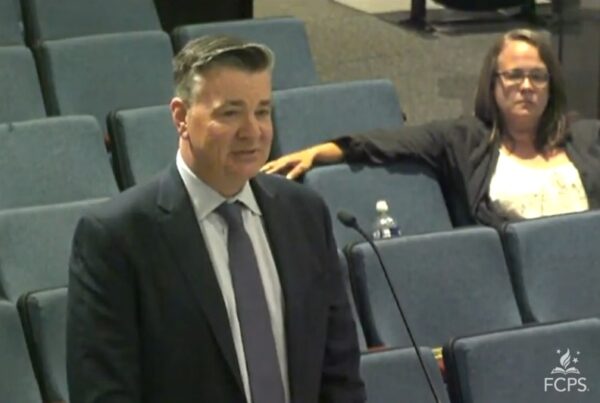
The influx of federal money that has helped buoy Fairfax County Public Schools and other school systems around the U.S. as they emerged from the first year of the Covid pandemic is starting to run out.
Facing a September 2024 deadline, FCPS officials presented a plan to the school board last Thursday (April 27) for spending approximately $57.5 million remaining from the $188.8 million in Elementary and Secondary School Emergency Relief (ESSER) awarded by the American Rescue Plan Act in 2021.
The biggest item in the plan is $22.2 million to extend contracts for special education teachers that compensate them for an additional 30 minutes of work per day, which FCPS says “is imperative” to attracting and retaining those faculty members.
“Our special education students were some of the students most impacted during the pandemic, and as a result, our special education teacher workload has significantly increased as they work very hard to meet the needs of those students,” FCPS Chief Academic Officer Sloan Presidio told the school board.
FCPS has 27,839 students with disabilities, who make up 15.5% of its enrollment, state data says. Based on data from before the pandemic, a report released last fall found significant disparities in test scores and discipline between those students and their peers not in special education.
In December, a U.S. Department of Education investigation determined that FCPS had failed to provide adequate support to special education students when it shifted to virtual learning early in the pandemic.
The proposed ESSER plan includes nearly $200,000 for compensatory services that FCPS is required to provide under its agreement with the DOE. The funds cover staffing as well as legal fees needed to reimburse for parents “for external educational costs incurred by them due to the pandemic-related school closures.”
When at-large school board member Abrar Omeish asked whether it was appropriate to use the funds on “trying to clean something up,” Presidio said the DOE confirmed it’s “an allowable expense” to address learning losses — one of four categories covered by ESSER.
While the spending plan mostly focuses on existing expenses, like a school health officer and the return of an expanded summer learning program, FCPS has proposed two new “projects”: $1.2 million to upgrade its website, and $250,000 to contract outside agencies that will work with chronically absent students.
About 15% of FCPS students missed 10% of school days or more during the 2021-2022 school year, according to the Virginia Department of Education (VDOE).
“Essentially, we’re identifying individuals that can connect with the student and connect with the family, understand the root causes of why that student is not able to attend school,” Presidio said. “It might be a health issue, it might be a transportation issue, it might be a work issue and a scheduling issue, and really help try to resolve those for the student and family as best as possible.”
He said counselors, teachers, social services and other school workers will stay involved, but the chronic absenteeism provider will have more capacity for the “labor-intensive” task of working with individual families.
“We need somebody who’s able to actually do those home visits and really coordinate and kind of case manage the services for the student and to be able to spend time with the family and student to understand what those root causes are,” he said.
Some school board members expressed concern about the amount of ESSER funds going to staff positions, from social workers to academic tutors, given that the money will run out after the 2023-2024 school year.
Presidio noted that some positions previously covered by ESSER have been phased out, like social distancing monitors, while other expenses, like additional English as a Second Language workers, have been incorporated into FCPS’ regular budget.
However, he acknowledged that in many cases, decisions will need to be made about “can we afford to retain any of these positions or do we lose them all.”
The proposed ESSER budget for fiscal year 2024, which begins July 1, is scheduled to be approved by the school board on May 11. FCPS then hopes to get the VDOE’s approval by May 31.

(Updated at 5:10 p.m.) For the first time ever, the Fairfax County Democratic Committee is allowing registered Democrats to vote on which school board candidates it will endorse this year.
The Fairfax County Democratic Committee (FCDC) announced yesterday (Monday) that it will hold an open caucus to allow any voter who registers with the party to vote in this year’s nonpartisan races.
On the ballot will be several school board seats — three at-large members, the Mount Vernon District representative, and the Hunter Mill District representative — as well as a member of the Northern Virginia Soil and Water Conservation District (NVSWCD) board of directors.
To vote in the caucus, voters are required to register with the FCDC. Registration opened yesterday and will continue until May 5. Online voting for candidates will be from May 13 through May 20, when there will also be an in-person voting option.
“With our new endorsement process, the Fairfax County Democratic Committee is giving the choice on our endorsed candidates to the voters,” FCDC Chair Bryan Graham wrote in a press release. “This process will strengthen our candidates for non-partisan offices and our party as we work to elect Democratic candidates to every position on the ballot this year.”
The county’s school board and the NVSWCD board are nonpartisan offices, meaning members don’t represent a specific political party, but the local Democratic and Republican committees can make endorsements.
For the school board, Kyle McDaniel, Ryan McElveen, Ilryong Moon, Hamid Munir, and Lawerence Webb will all be vying for three at-large spots. None of the incumbents are running for those spots again, though Rachna Sizemore Heizer is campaigning for the Braddock District seat.
Both Moon and McElveen are former members of the school board, having stepped down at the end of 2019, while McDaniel, Munir, and Webb would be new.
In the Mount Vernon District, Mateo Dunne and Harold Sims are looking to replace current representative Karen Corbett Sanders, who is retiring.
Melanie Meren is seeking FCDC’s endorsement for reelection as the Hunter Mill District representative, competing against Paul Thomas, a current member of the Reston Community Center’s Board of Governors.
The committee has already endorsed several school board candidates who were uncontested in seeking its support, including:
- Braddock District: Rachna Sizemore Heizer
- Dranesville District: Robyn Lady
- Franconia District: Marcia St. John-Cunning
- Mason District: Ricardy Anderson
- Providence District: Karl Frisch
- Springfield District: Sandy Anderson
- Sully District: Seema Dixit
The Fairfax County Republican Committee will determine its endorsements in the nonpartisan races at a meeting on April 19, according to Fairfax GOP Vice Chairman Nick Andersen.
The committee has hosted both in-person and virtual meetings in recent months so its members can get to know the candidates.
“The endorsement meeting itself will include district-level caucuses to provide recommendations to the full membership followed by a paper ballot-based vote for all members in attendance,” Anderson said. “Candidates for office must achieve a simple majority of voting members that are participating in the meeting in order to receive the FCRC endorsement.”
There are also a number of partisan races coming up this year, meaning candidates can represent a specific political party. Those primaries will be held on June 20.
Last week, the FCDC announced the candidates in those races that have officially qualified to seek Democratic nominations.
Notable contests include the Fairfax County Board of Supervisors chair and four district seats, Commonwealth’s attorney, sheriff, four State Senate seats, and three House of Delegate seats.
The primary is set for June 20, and the general election is on November 7.

The Fairfax County School Board will have a lot of new faces next year — and perhaps, a couple of members reemerging from its past.
The latest member to opt out of a reelection bid is at-large member Abrar Omeish, who told FFXnow that she has instead accepted a job with a nonprofit that focuses on youth law and advocacy.
She will also serve on the board of a national youth organization, though she’s not able to publicly announce the exact positions yet.
In a statement on her decision, Omeish cited frustrations with the legal and public relations battles that she says have undermined the school board’s efforts to further equity and inclusion.
“Because of how stifling these investigations have been on the ability of our school system to implement real change, I have accepted an offer to fight the very legal battles that have bled our system and so many others on a national level,” she said. “My work will allow school systems across the country to pass more equitable and inclusive policies without fearing the legal threats of lawsuits and investigations, fighting for every child in the nation.”
Elected to the school board in 2019 at 24 years old, Omeish was one of the first Muslim women and the youngest person at the time to win elected office in Virginia.
Sharing supportive comments from current and former students, she says her proudest accomplishments while on the board include advocating for free virtual tutoring and mental health services for students, the addition of more religious holidays to the school calendar, and support for expanded language translation services.
However, Omeish has clashed at times with her colleagues on the school board, some of whom publicly criticized her for calling Israel’s treatment of Palestinians “apartheid.” In addition, the student-led LGBTQ advocacy group, Pride Liberation Project, accused her in 2021 of making “bigoted comments” during a phone call, for which she later apologized.
Fairfax County Public Schools as a whole has faced political and legal challenges over the past few years, from the ongoing lawsuit over Thomas Jefferson High School for Science and Technology’s admissions process to a federal review of its special education services during Covid and a state investigation of its handling of National Merit Scholarship commendations.
Omeish was one of three school board members targeted by recall campaigns in 2021 led by parents who opposed school closures for the pandemic. The petition against Omeish didn’t get enough signatures to reach court, while ones against Springfield District Representative Laura Jane Cohen and Dranesville District Representative Elaine Tholen were dismissed.
Still, Omeish says she remains “proud of all that my team has been able to accomplish and bring to benefit Fairfax County.”
“I will remain a voice in our community and in FCPS — the system I grew up in and still have family in, the system I came to serve and love — to see much of what I will fight for come to life at the local level in my own home,” Omeish said. “For now, I will remain laser-focused on giving everything I have to this work. We still have a bright eight months ahead to do all that we can for our kids, and I still have a few ideas left for what I hope to accomplish.” Read More

